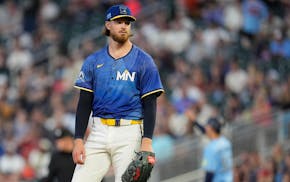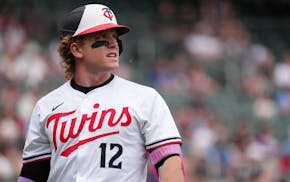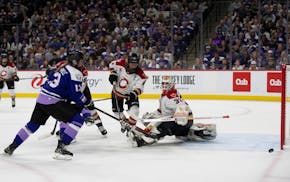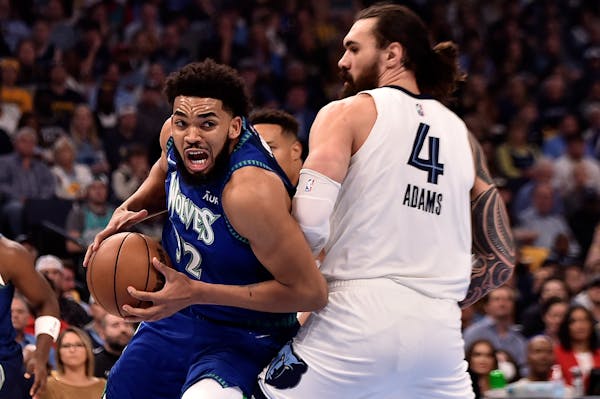By the time Karl-Anthony Towns agreed to his four-year supermax extension with the Timberwolves late Thursday night, the deal had become a formality for each side.
Towns' extension, which clocks in at an estimated $214 million and runs through 2028, is an example of how the modern NBA works, and how a star player takes on little risk of signing such a deal even if he might eventually want to find a way out of it.
The sheer numbers of a deal are going to make some fans balk. More than $50 million per year?
This is the cost of doing business in the modern NBA for players who make it to All-NBA teams, which Towns did this season, and in doing so qualify to make up to 35% of the salary cap on this extension, under league rules.
Towns is a three-time All-Star and two-time All-NBA player. By the standards of the modern NBA, he deserves this kind of deal. If you look at players who make the All-NBA team, almost all of them are on maximum contracts. The Wolves had little choice but to offer Towns this extension if they didn't want to risk losing him, even before his current deal expires after the next two seasons.
Only the Wolves were positioned to offer him 35% of the salary cap. The NBA incentivizes players to sign with the teams they are currently on or that drafted them by allowing those teams to offer more money in contracts. No other team could offer Towns 35% of the cap on his next contract, and the NBA allows teams to offer these deals with two years remaining on a player's current contract.
It's all in the name of allowing smaller- to medium-market teams like Minnesota to fend off free-agent pitches from bigger markets to players they drafted and developed.
Even if you don't believe Towns can be the No. 1 player in a championship franchise's pecking order, he's a No. 2 or a strong No. 3 at the very worst. What kind of money do those players make? Maximum contracts. His new teammate, Rudy Gobert, is a prime example. Any way you cut it, Towns was getting this money.
The numbers of his deal are so high in part because the NBA is doing so well. This is like other sports, where contracts for quarterbacks in the NFL and stars in MLB keep rising and rising. Towns' deal is tied to a percentage of the salary cap, which is determined by the amount of basketball-related income the league rakes in each year.
Thanks to the league's multibillion-dollar TV deals, those numbers rise by leaps and bounds each season. Towns may be making more money than players who signed these types of deals in the past, but he's making the same percentage of the salary cap they did, there's just (a lot) more money available now, and the Wolves had to give it to him based on the current landscape of the NBA.
On the flip side, Towns has always preached loyalty to the Wolves, through losing season after losing season, front office after front office and coach after coach.
There were plenty of rumors throughout his tenure that he was unhappy and wanted out, and there was no better response to those rumors than what Towns did Thursday in agreeing to the deal.
But in the modern NBA, how valuable is a contract to keeping a player in one place anyway?
Towns agreed to his deal just hours after Kevin Durant shook up the entire league by asking for a trade out of Brooklyn. Durant has four years left on a deal he signed last offseason. Four years. Not one or two. Four. In the player empowerment era, star players have the leverage to ask out whenever they want and get teams to send them to where they want to play.
Towns has always said he was happy in Minnesota despite the dysfunction around him, and he certainly was happy last season when the Wolves made the playoffs.
Should that happiness go south at almost any point, there's no reason Towns couldn't ask to be dealt — all while still cashing those massive checks on a deal only the Wolves were able to offer him.

Twins pitcher Ober struggling to regain fastball velocity

Twins lose second in a row to Blue Jays as bullpen falters late
What is the 'House settlement,' and what does it mean for the Gophers and NCAA?

